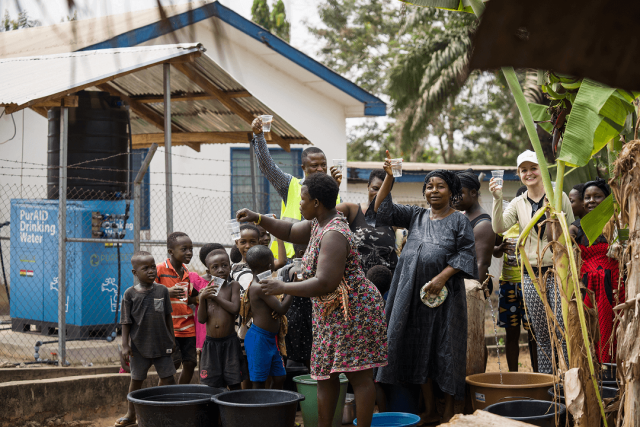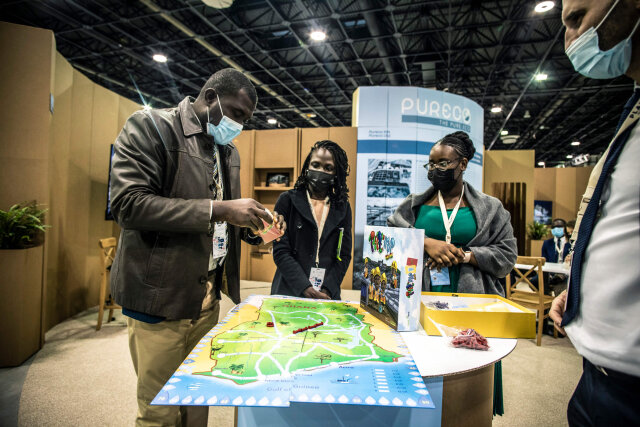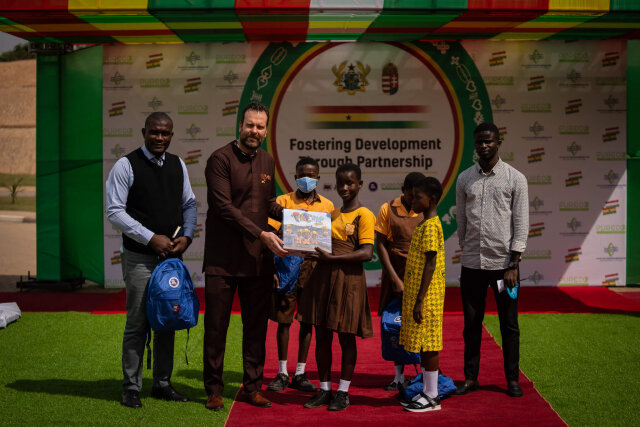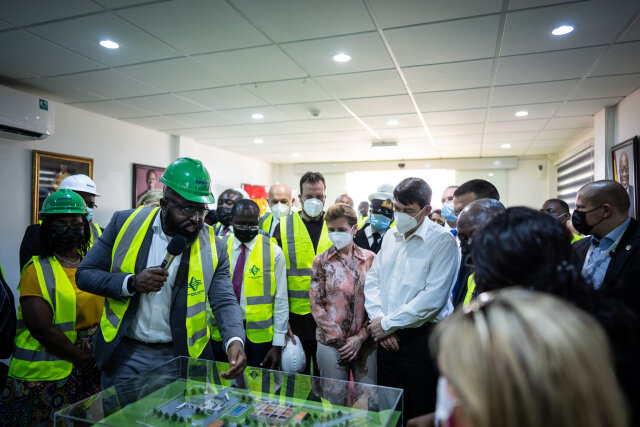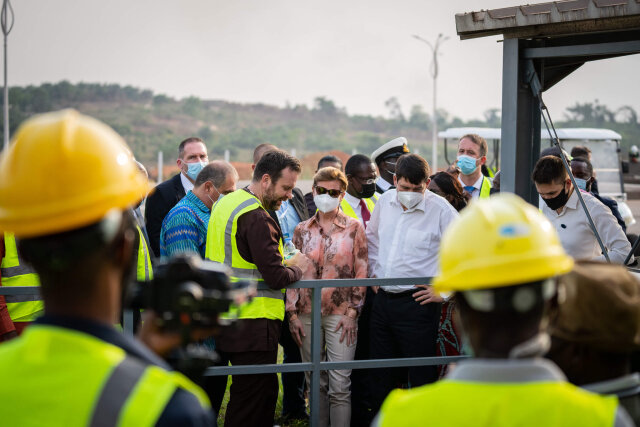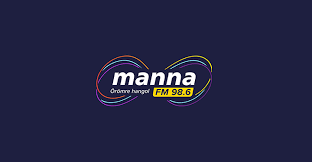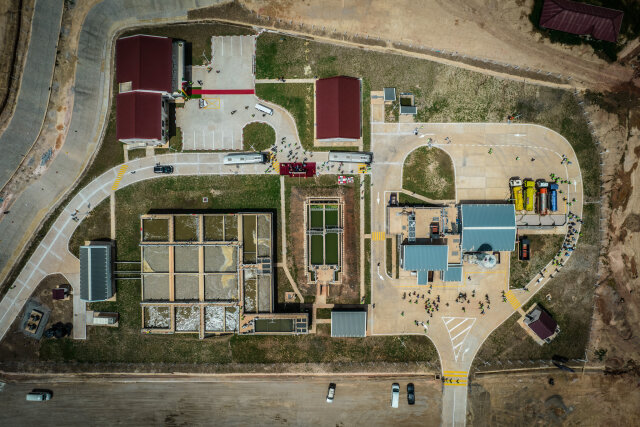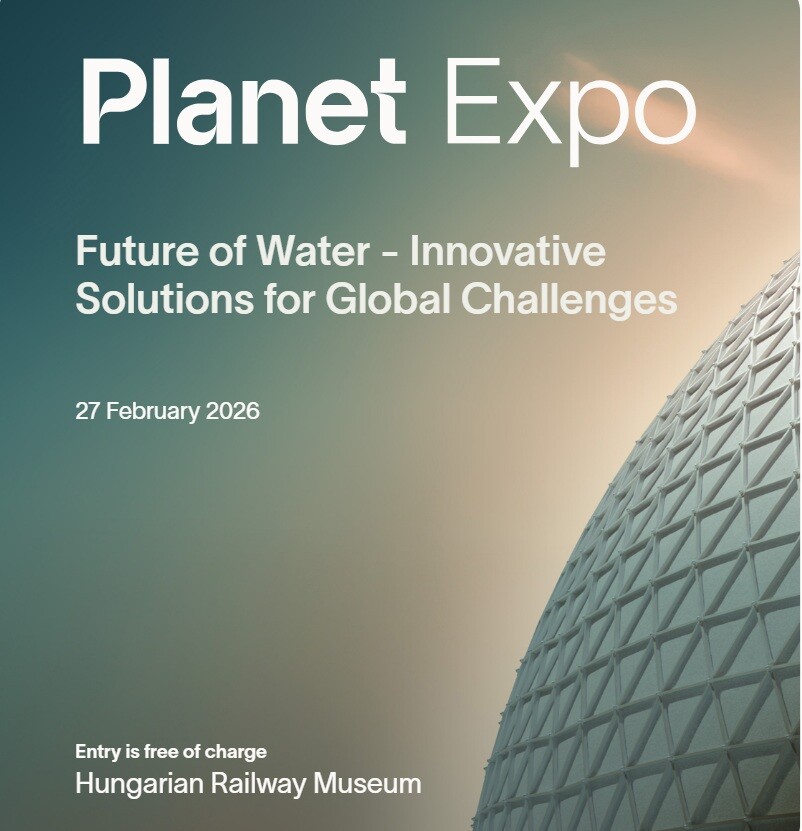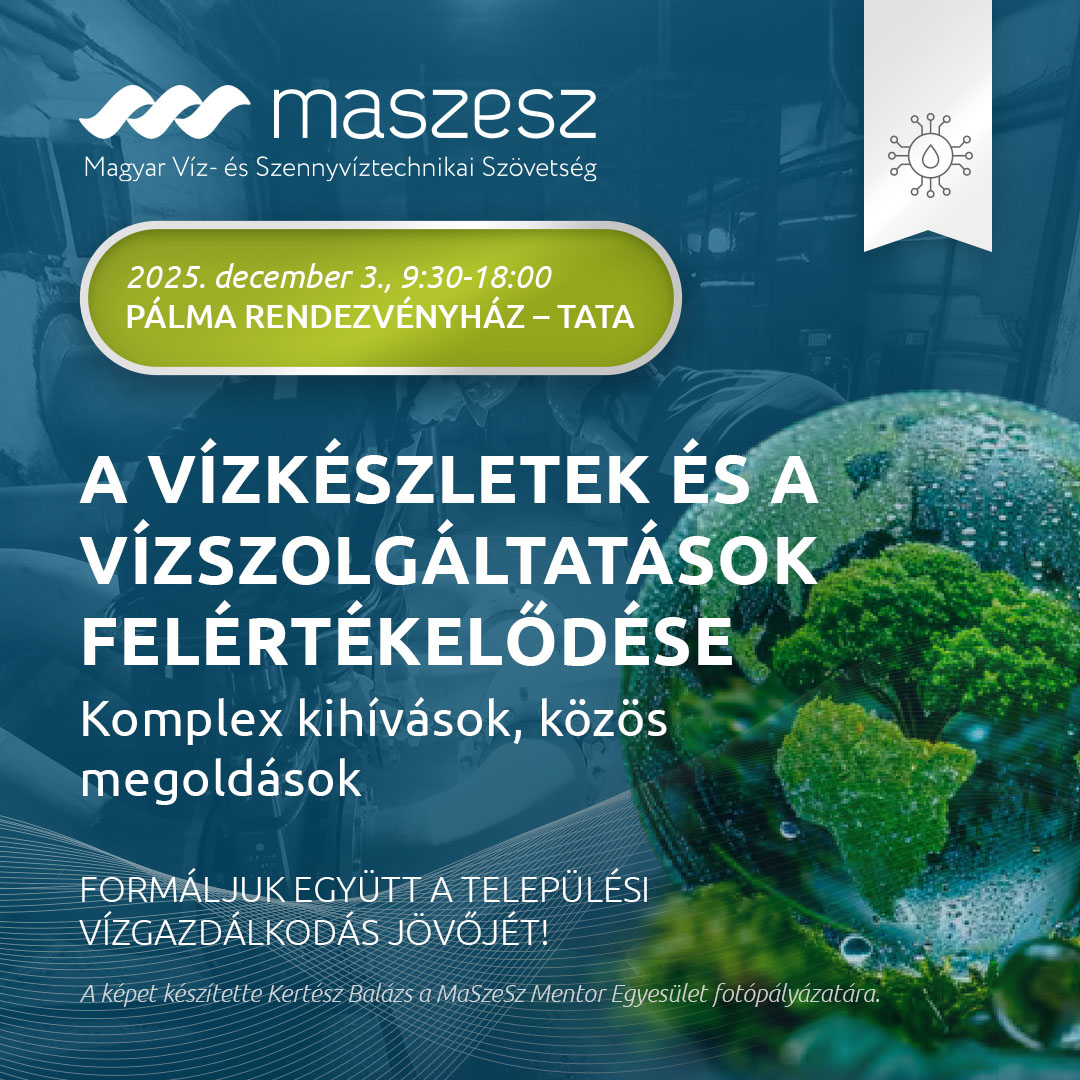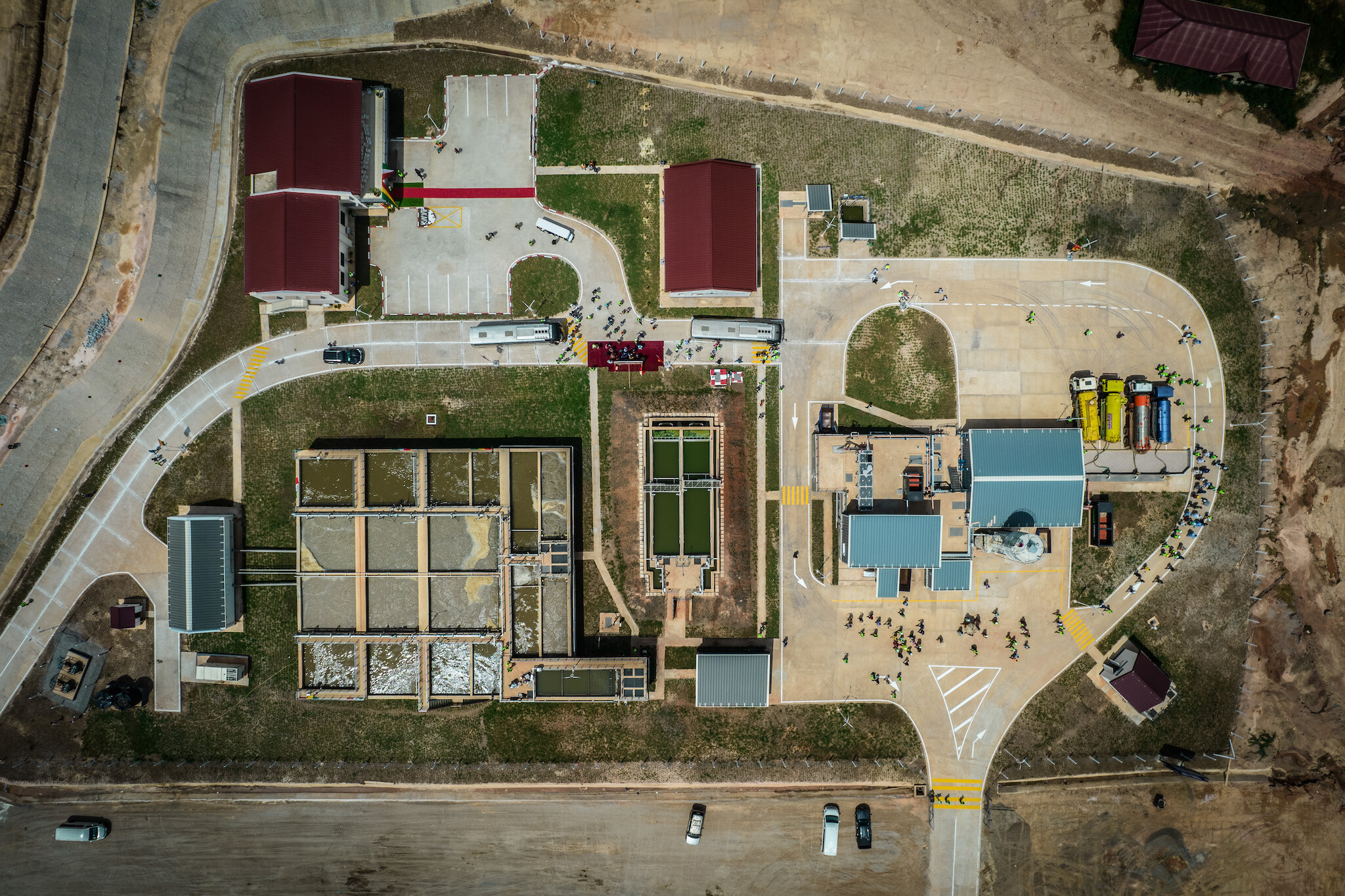
Manna FM interviewed our Managing Director, Bálint Horváth, about the experiences of wastewater and drinking water treatment in Ghana and the role of conscious water consumption and storage in our future. First of all, in response to a question from the editor, Donat Prekopa, he explained that on his recent trip to Ghana he presented the well-established and operational wastewater treatment plant to János Áder. He explained that despite COVID, the project was completed quickly, in one and a half years.
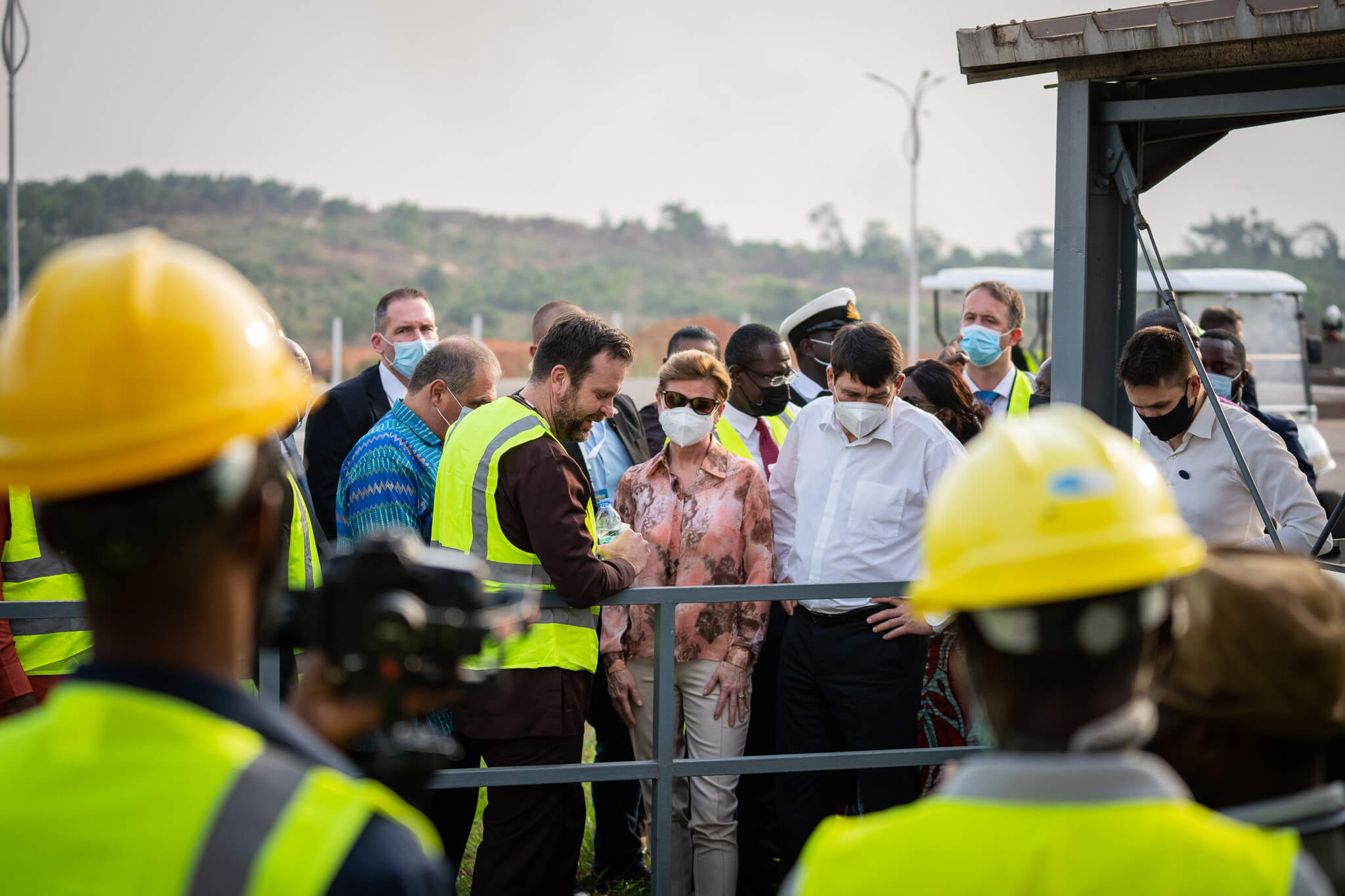
In the picture János Áder and Anita Herczegh at the wastewater treatment plant... President János Áder talks to Bálint Horváth, head of the Pureco-Unit Consortium. Péter Dózsa Pureco IDEA.
He stressed that the Budapest Water Summit (BWS), initiated by the President, was the first event in 2013, and then 2016 and 2019 to establish a relationship with Ghana, which was organized with the aim of presenting Hungarian companies to potential partners abroad. The BWS events are one of the reasons for the realisation of the plant now in Kumasi.
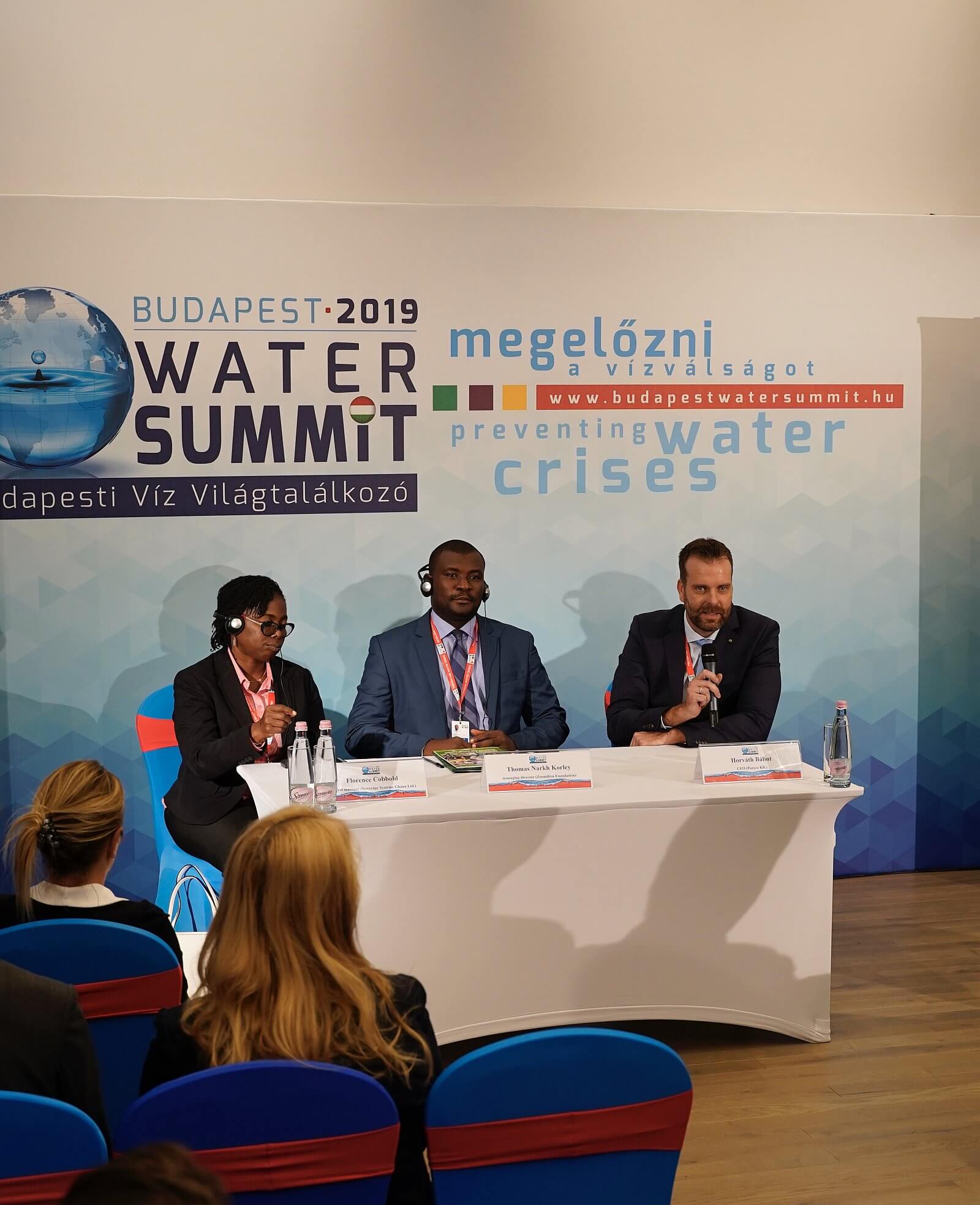
Bálint Horváth and the representative of Zoomlion Foundation at the signing ceremony of Pureco Educational Partnership Programme in 2016 at the BWS
Our country can supply drinking water to a high standard, even in EU term. With the high level of expertise of water utilities, 85% of our country is now covered by sewerage and wastewater treatment. We wanted to bring this high level of expertise to Ghana. This is the basis for our presence in Africa," he said in the interview. There is a lot to do in developing countries, many challenges and huge development potential, which I see not as a problem but as an opportunity for our company. With the help of Hungarian water diplomacy, the problems that need to be addressed can be turned into projects. This is not a charity, but a professional investment for profit. Besides, the most important thing is that we have created a sustainable, professionally excellent, well-operated facility that takes into account the conditions on the ground," the CEO added.
Part of the profits we make will be reinvested in projects for a foundation that focuses on developing children's environmental awareness. The feedback on the board game for 10-14 year olds has also been positive. The value of water is not recognised deeply enough even in Europe. We spend on bottled water more and more, believing that it is better than tap water. Through the game, children learn about important issues and solutions about water. In Sierra Leone and Egypt, the game is also attracting a lot of interest. We, as investors, must also pay attention to educating the growing generation.
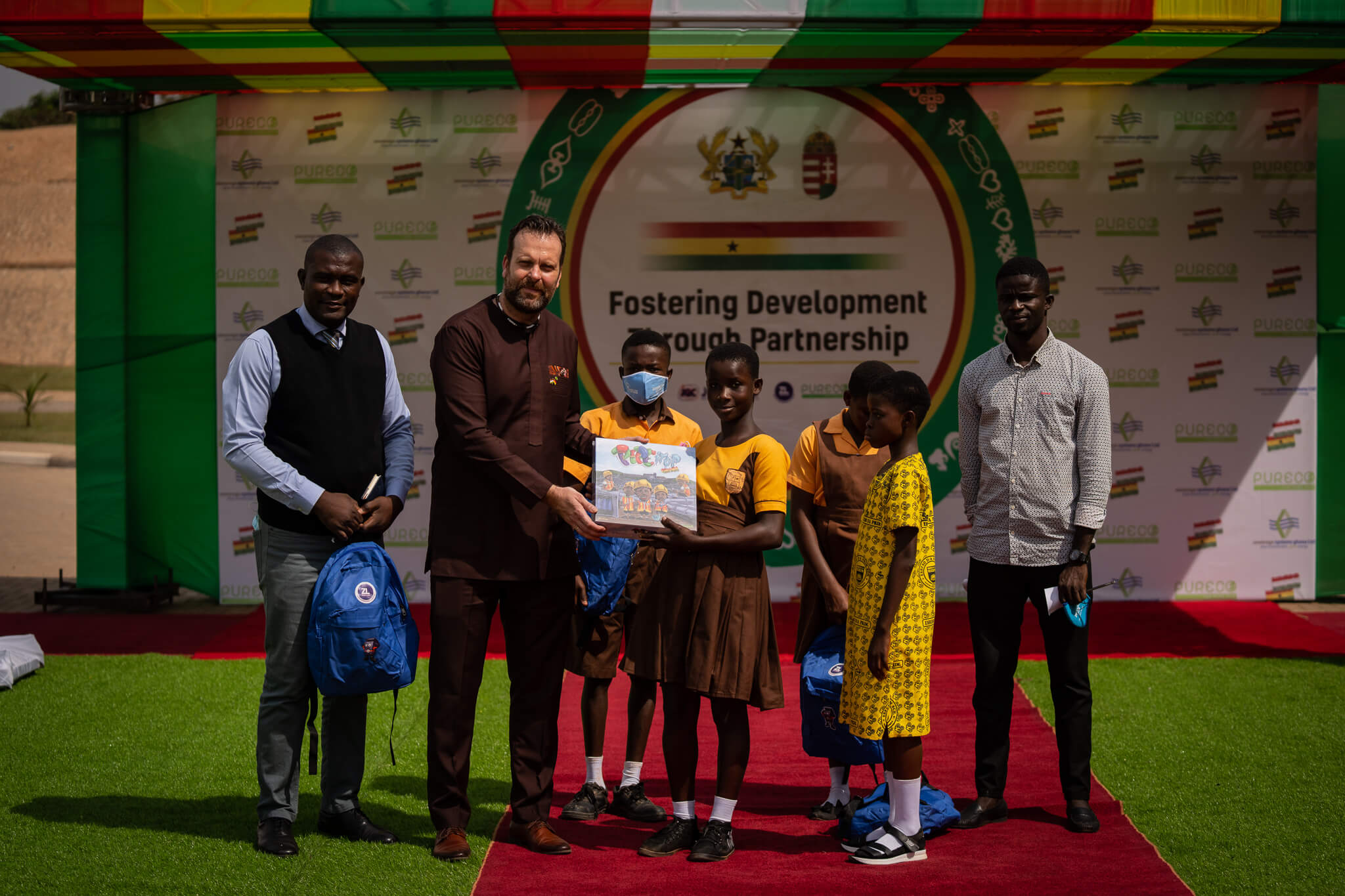
Bálint Horváth and Zoomlion Foundation representative in Kumasi with the winners of the PEPP board game mini-tournament. Péter Dózsa Pureco IDEA.
Besides the wastewater treatment plant, the editor also asked about the status of the drinking water treatment project. In response to a question our CEO said that Ghana has a lot of rainfall due to its proximity to the equator, there is no water shortage, but the problem of water purification persists in many places. The lack of sanitation means that there is a huge risk of infection and drinking water wells are often contaminated. The construction of a treatment plant in Kumasi and two other cities will significantly improve sanitation. And our drinking water treatment plant, which is currently being tested, will contribute to healthy everyday life in smaller communities. Drinkable water is not available in many places, and our solution is currently being tested. We are testing small water purification plants, both at home and in Ghana, that can produce drinking water from groundwater or groundwater strata. In smaller communities where it is not worthwhile to transport piped water, borehole water purification is an excellent solution. Testing of the equipment will be completed in early March, after which we will start discussing the sale of further systems, closed his thoughts Mr Horváth on drinking water.
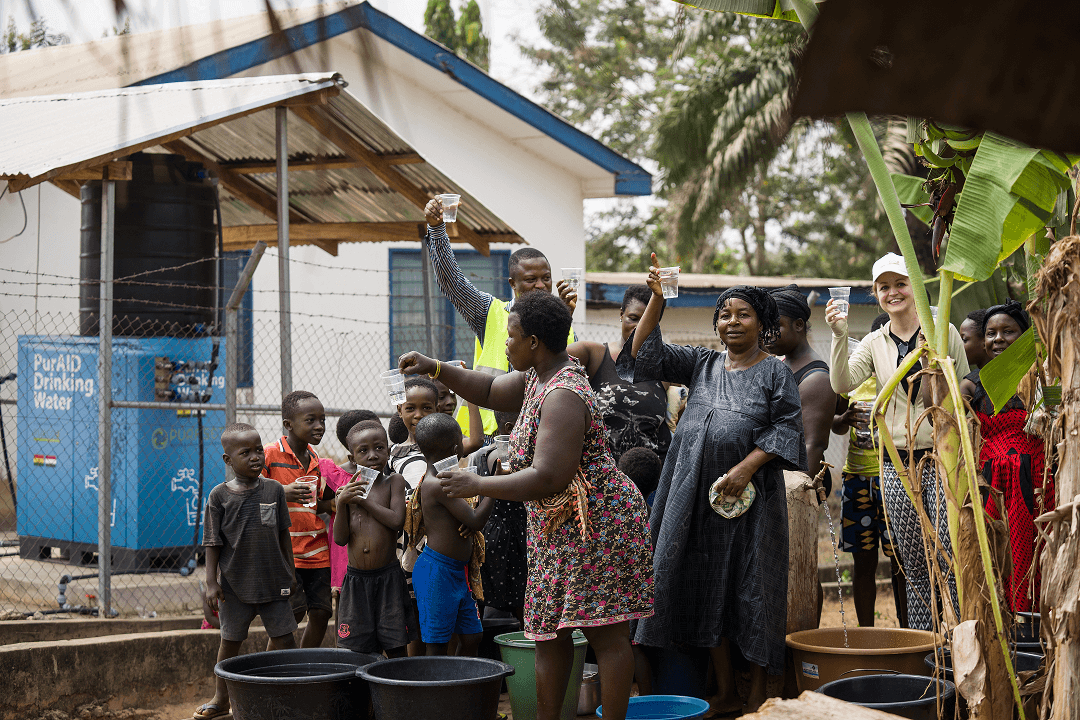
When asked by the editor how the city administration and the population react to the change in their daily lives, the CEO said that for them it is not such a spectacular change, because the wastewater was already being transported, it just has not been treated. What will be spectacular is the positive trend in diseases and infections. Bálint Horváth said that this will make smaller settlements more liveable, and with improved infrastructure, migration will also be reduced. The final topic of the interview was the response to the water crisis, with our CEO highlighting two issues. Firstly, that the trends very strongly indicate that in Central and Eastern Europe, total precipitation will not be less in the short term, but its seasonality will change strongly. Months can go by without precipitation and then it comes in the form of flash floods. The issue of stormwater drainage and storage, a task that has not been solved, is our most important task in our country and in Europe in the near future. In conclusion, it was said that we are planning and installing such rainwater storage and drainage systems for industrial operators, which are proving successful throughout the country.

